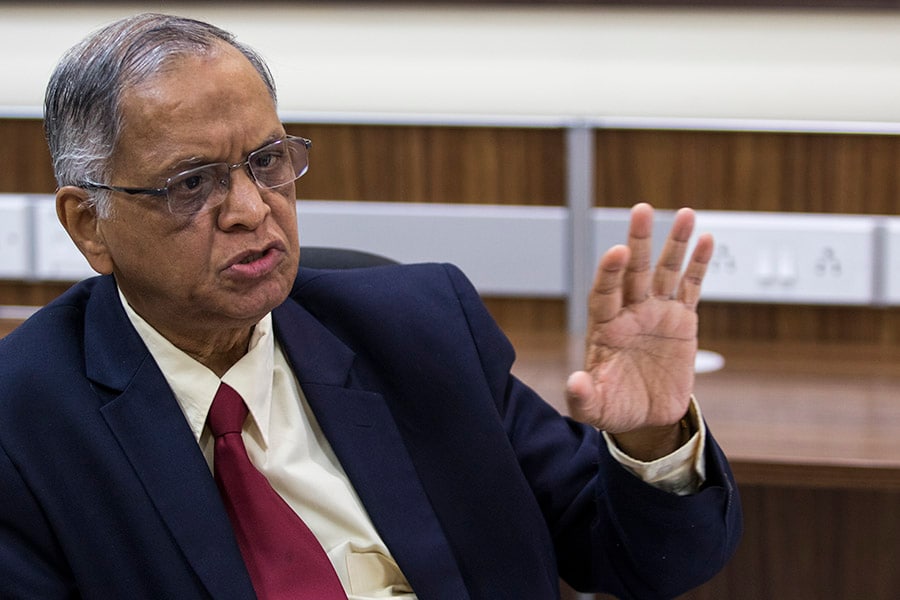Fantastic founders and when to lose them
There are hardly any noteworthy cases in India of promoters letting their CEOs run their businesses. No one wants to let go of control over their empire
 In recent times, Murthy & Co became the lead actors in the boardroom potboiler at Infosys where they appeared to have relaxed control, but continued to play an active role in a boardroom drama.
In recent times, Murthy & Co became the lead actors in the boardroom potboiler at Infosys where they appeared to have relaxed control, but continued to play an active role in a boardroom drama. Image Source: Selvaprakash Lakshmanan for Forbes India
When did you last hear of a founder who quietly faded into the sunset, leaving the reins of the company to its professional CEO? Did I just hear a cynical scoff or did someone say it is oxymoronic behaviour of sorts?
Most business founders have their unique way of staying on, even if they had ‘volunteered’ to move on and hand over the reins to professional managers.
In recent times, Murthy & Co became the lead actors in the boardroom potboiler at Infosys where they appeared to have relaxed control, but continued to play an active role in a boardroom drama. Far away, on the other side of the globe, Travis Kalanick is alleged to have brought his pack of directors on the Uber board, even after being ousted under not-so-glorious circumstances. What then makes a founder hold on to their company?
Without a doubt, a company’s birth is seeded by the dream of an entrepreneur, and therefore one cannot deny the intense attachment that any founder nurtures towards the enterprise.
Growth of family businesses to MNCs
Most of the world’s largest corporations all started this way: IBM, GE, Walmart, Unilever, Toyota, Daimler, the list is long. Virtually the entire Fortune 1000 saw similar origins. Most of them are public companies today, analysed to death quarter to quarter. While a few of them continue to be private or strongly controlled by the founder group or family, others have created a professional management structure and layer to run their complex operations. This has seen them grow into some of the top MNCs today.
Their boards saw infusion of external talent as well. What triggered this? Scale, new markets, intense competition, need for structure, increasing regulatory requirements, and sometimes reluctance of the next generation of the founder group to dirty their hands in running these companies–all of these could be possible reasons.
The Ford Motor Company today is different from the days when Henry Ford ran the company sleeves rolled-up, right down to famously deciding the colour of his Model Ts! Founders today can opt to play any role they wish–they could be passive shareholders, content to collect their dividend and get on with their own lives; some are founder board members who are active, including deciding the choice of CEO and assessing their performance. Carly Fiorina had a taste of this when the Hewlett and Packard families, which together owned close to 7 percent of the company, opposed the HP-Compaq merger, and Fiorina eventually found herself fired by the HP board.
Family businesses in India
In India, founder families or promoters as they are often called, have been more direct and honest than their Western counterparts about wanting to control and run their companies. These companies are like family heirlooms, to be nurtured, grown and handed over to the next generation to manage. Admirably many of have indeed doggedly grown their companies over generations. Some, such as Reliance or the OP Jindal Group, had to split the family heirloom to satisfy multiple family members, and in turn these smaller parts have again grown into a sum total which is larger than the original company.
However, some have also died owing to their inability to face competition and reinvent themselves. Sadly, there are many who were wiped off due to serious meddling in the professional management of the company, or worse, taken to financial ruin by reckless spending and random business decisions.














